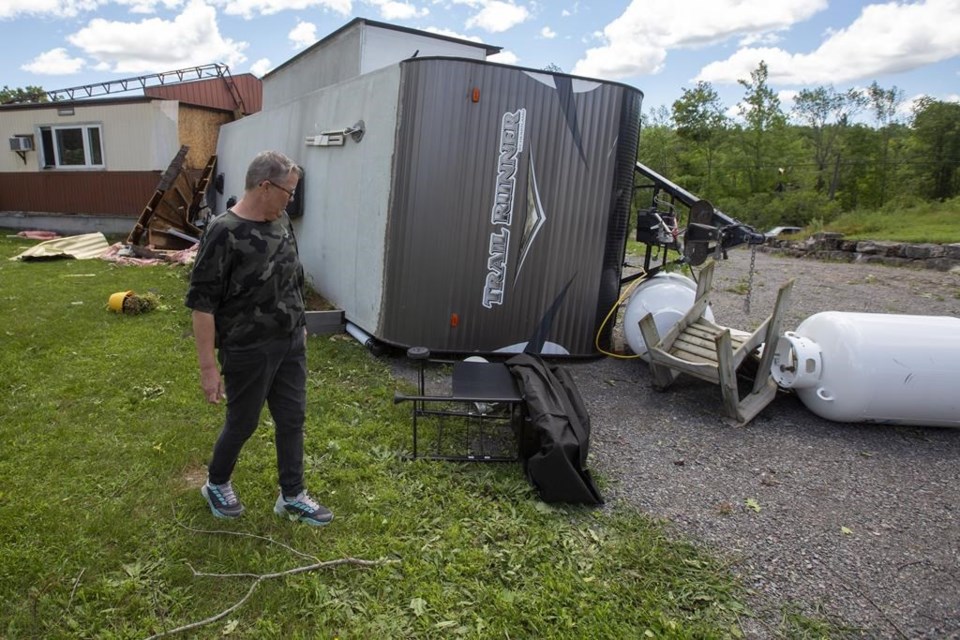Mayors in parts of eastern Ontario hit by a tornado said Tuesday the resilience of their rural communities was on display as they recover from a third major storm in nearly two months.
Environment Canada confirmed that at least one tornado touched down in an area north of Belleville, Ont., on Sunday night as severe thunderstorms swept through parts of the province.
Tweed Mayor Jo-Anne Albert said she had not heard of any significant injuries in her municipality, where she declared a state of emergency Monday in response to the storm.
“There’s devastation to some of our houses,” she said. “A lot of damage.”
The storm tore roofs from houses, downed trees onto major roadways and toppled hydro lines serving tens of thousands of customers as the tornado ripped through a stretch of rural communities along Highway 7 on Sunday.
Environment and Climate Change Canada said it had found a "long track of damage due to at least one tornado and downburst winds" in the area of Marmora, Madoc and Actinolite.
By Tuesday afternoon, the Hydro One outage map showed power had been restored to most of the 40,000 customers who had lost it, with remaining outages expected to be resolved by Wednesday.
A local pizzeria delivered pies Monday night and a local non-profit offered to help keep workers fed Tuesday, Albert said, as staff continued to clear roads of the storm’s ruins. She said all roads had reopened to local traffic and emergency services.
“The people of this municipality and rural communities are so resilient. They look after themselves and then they go look after their neighbours. So we’re very lucky that way,” she said.
That resilience has been called upon more than once this year. A rare and deadly windstorm left many in the region without power for days after it whipped across Ontario in late May, and the area was hit again by a supercell thunderstorm in mid-June.
Albert said Sunday's storm has crystallized the need to wire a generator at the local arena and to make plans for an overnight emergency centre where residents displaced by future storms could take shelter.
Climate change is expected to increase the intensity and frequency of extreme weather events.
"I think climate change definitely has something to do with it," Albert said. "And we have to be prepared."
In neighbouring Madoc Township, Mayor Loyde Blackburn said no injuries had been reported to him, with property damage mostly limited to some damaged roofs.
He expected all roads to be cleared by end of the week, but said it would take weeks before the mess of debris was fully cleaned up.
Blackburn echoed Albert's concerns about the increase in the frequency of storms in the area.
"The big thing for us is this is something we're not used to," he said. "It's very costly for a municipality and right now there's no help out there."
Blackburn said some locals joined emergency crews in helping to clear downed trees off roads.
He said just about everybody in the municipality owns a chainsaw, and most are willing to lend a hand.
"That's always been a way of life in rural Ontario and fortunately we've never lost that," he said.
This report by The Canadian Press was first published July 26, 2022.
Jordan Omstead, The Canadian Press

